Coping Skills and Strategies for Self-Harm
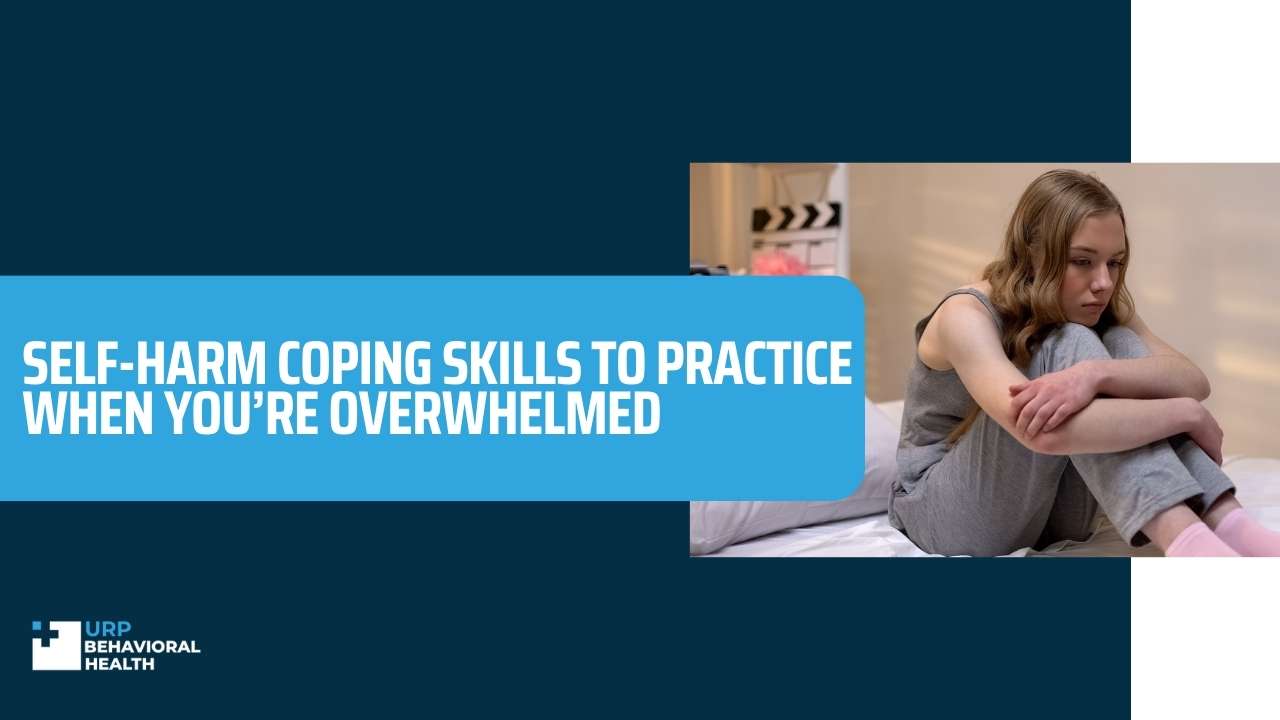
Though the prevalence of self-harm is higher among bipolar disorder and borderline personality disorder, it exists as a problem on its own as well. When you’re dealing with painful feelings, self-harm can seem like a way to cope with them.
However, self-harm strategies can lead to negative effects on your health in the long run. For people struggling to stop self-harm, stressful situations can be a trigger for certain behaviors. In these situations, it’s crucial to know certain coping skills so that you don’t feel overwhelmed.

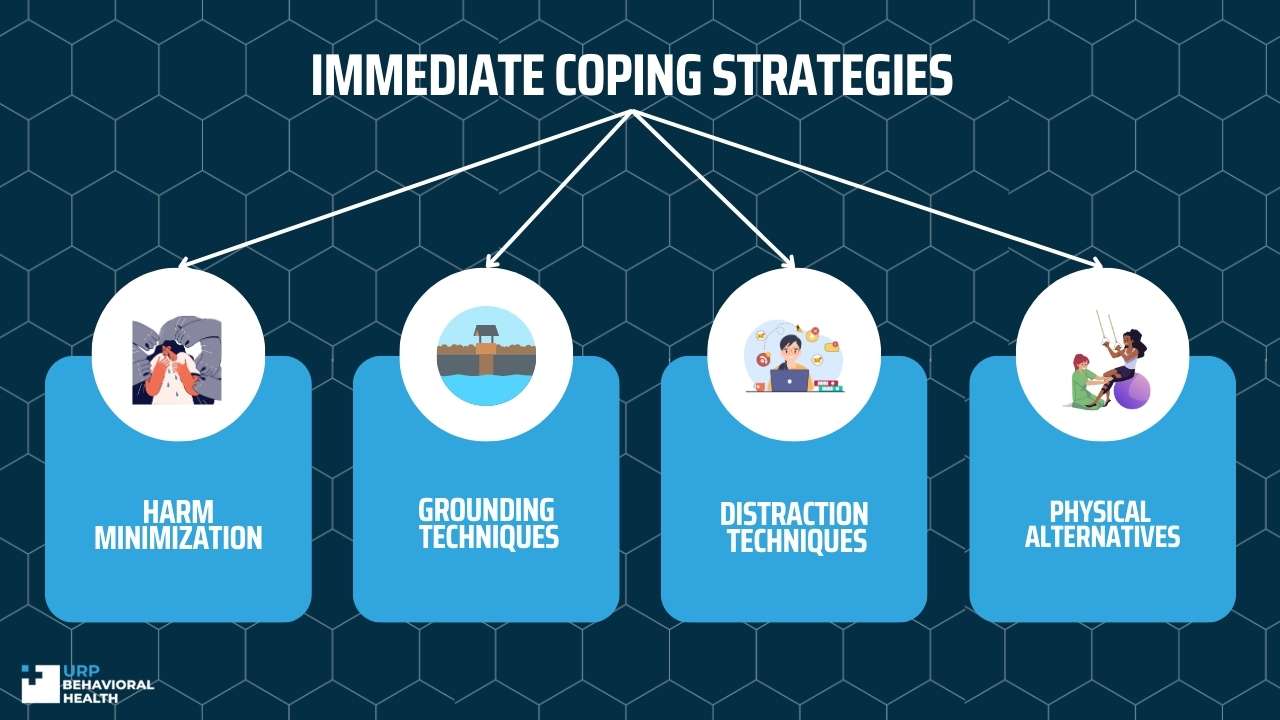
Immediate Coping Strategies
Harm Minimization
In situations where there’s no time to prepare yourself for grounding techniques, mental health professionals at treatment centers like URP Behavioral Health recommend harm minimization strategies as an alternative. These are short-term solutions designed to provide you with a physical sensation similar to that of self-harm behaviors.
These include strategies such as:
- Hold some ice cubes in your hands and press them against your arms, face, or any other part of your body.
- Snapping a rubber band on your wrist provides a painful sensation without needing to cut, scratch, or burn the skin.
- If you’re feeling angry and frustrated, squeezing a stress ball is a physical technique that helps expend that energy.
Grounding techniques
When you feel the urge to self-harm, it’s difficult to see past your current situation and bring yourself to the present. Here, grounding techniques like the 5-4-3-2-1 strategy can help anchor you in the present by using your five senses. To practice this technique:
- Name 5 things you can see, like the cup of tea in front of you or the painting on the wall.
- Name 4 things you can feel, like the texture of your jeans and how the carpet feels under your feet.
- Name 3 things you can hear, like the sound of birds or traffic outside your window.
- Name 2 things you can smell, like your neighbor’s cooking or the fragrance of shampoo.
- Name 1 thing you can taste. If you’re not eating or drinking something at the moment, see if you can taste your morning coffee or breakfast cereal in your mouth.
Distraction techniques
One way to cope with self-harm urges is to distract yourself and delay the behavior. You can do this by:
- Getting out of the house and taking a walk outdoors can alleviate the urge to self-harm by the time you get back.
- Listening to some music: Make sure you choose calming tunes instead of emotional music that makes you feel worse.
- Tidy up your room or declutter your closet by taking out things you don’t need.
Physical Alternatives
Self-harm could be a way to deal with anger and frustration. If you’re dealing with such emotions, physical strategies like the following can help:
- Exercising can reduce stress by curbing levels of cortisol in the body. It also stimulates the production of important neurotransmitters to improve mood and alleviate self-harm urges.
- Studies indicate that taking a cold shower can activate the parasympathetic nervous system, which prepares your body to relax.
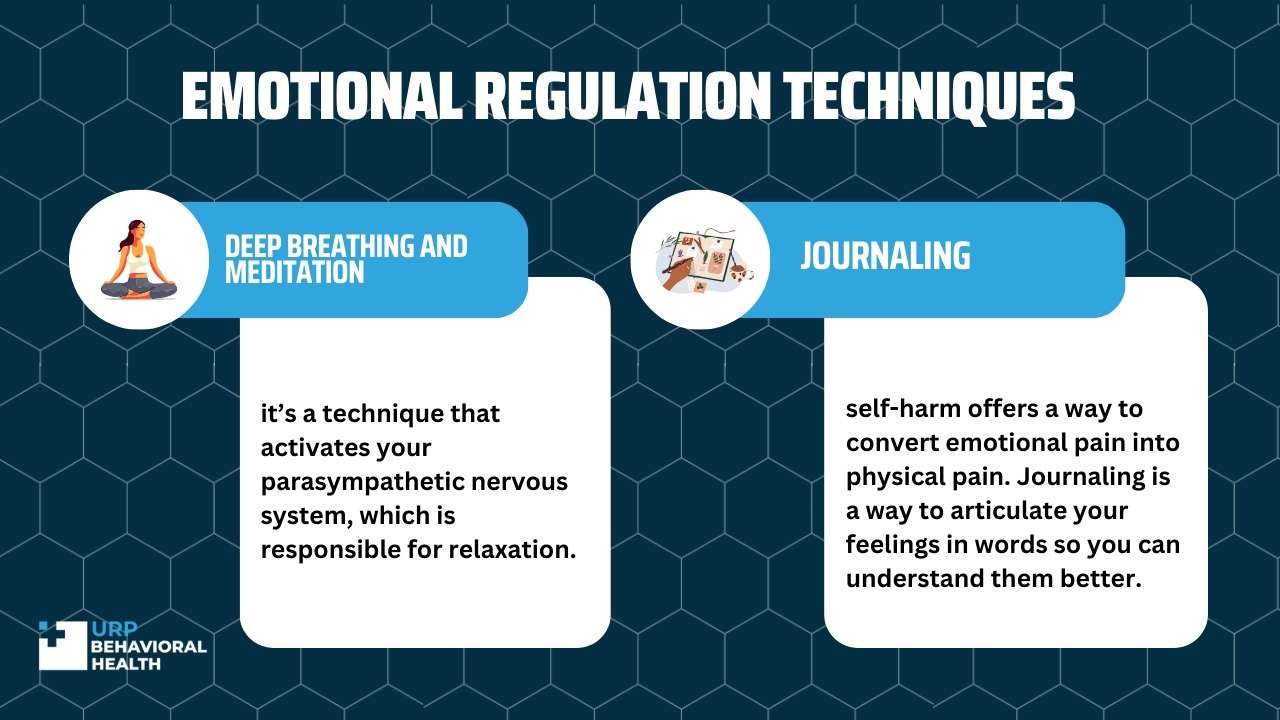
Emotional Regulation Techniques
Deep breathing and meditation
Also known as diaphragmatic breathing, it’s a technique that activates your parasympathetic nervous system, which is responsible for relaxation. Simply breathe in through your nose and feel your abdomen rise, then exhale through your mouth as your abdomen contracts.
Journaling
Because emotional pain is difficult to express, self-harm offers a way to convert emotional pain into physical pain. Journaling is a way to articulate your feelings in words so you can understand them better. This way, you can cope with the next time you experience these feelings.
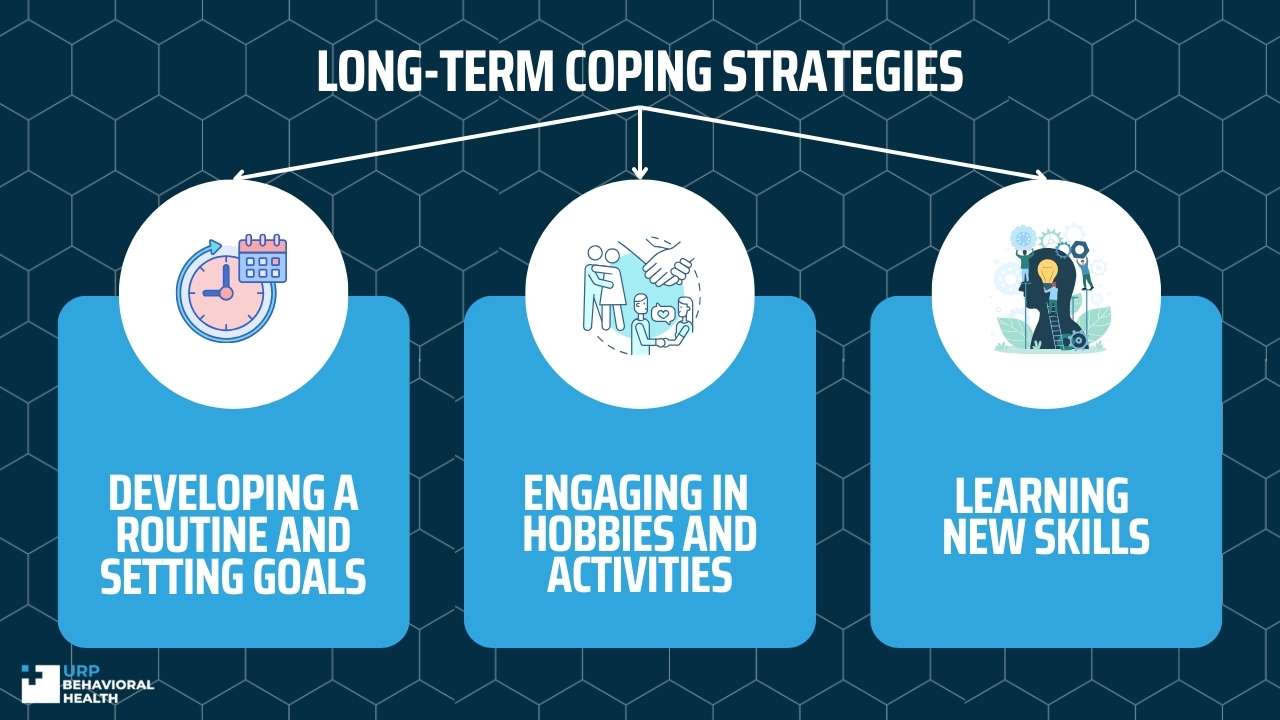
Long-Term Coping Strategies
Developing a routine and setting goals
By developing a consistent routine, you have more control over different situations. This makes the outcome seem more predictable, taking anticipation and worry out of the equation. Similarly, setting small, realistic goals is an effective way to develop a clear vision and path towards bigger goals.
Engaging in hobbies and activities
Studies indicate that people who pursue hobbies are less likely to experience low mood and depression. Finding new hobbies and engaging in recreational or leisure activities can curb your stress levels, ultimately resulting in fewer urges to self-harm.
Learning new skills
By learning new skills and enhancing your knowledge, you experience feelings of growth and competency. This can alleviate stress while focusing on the learning process is a helpful distraction as well.
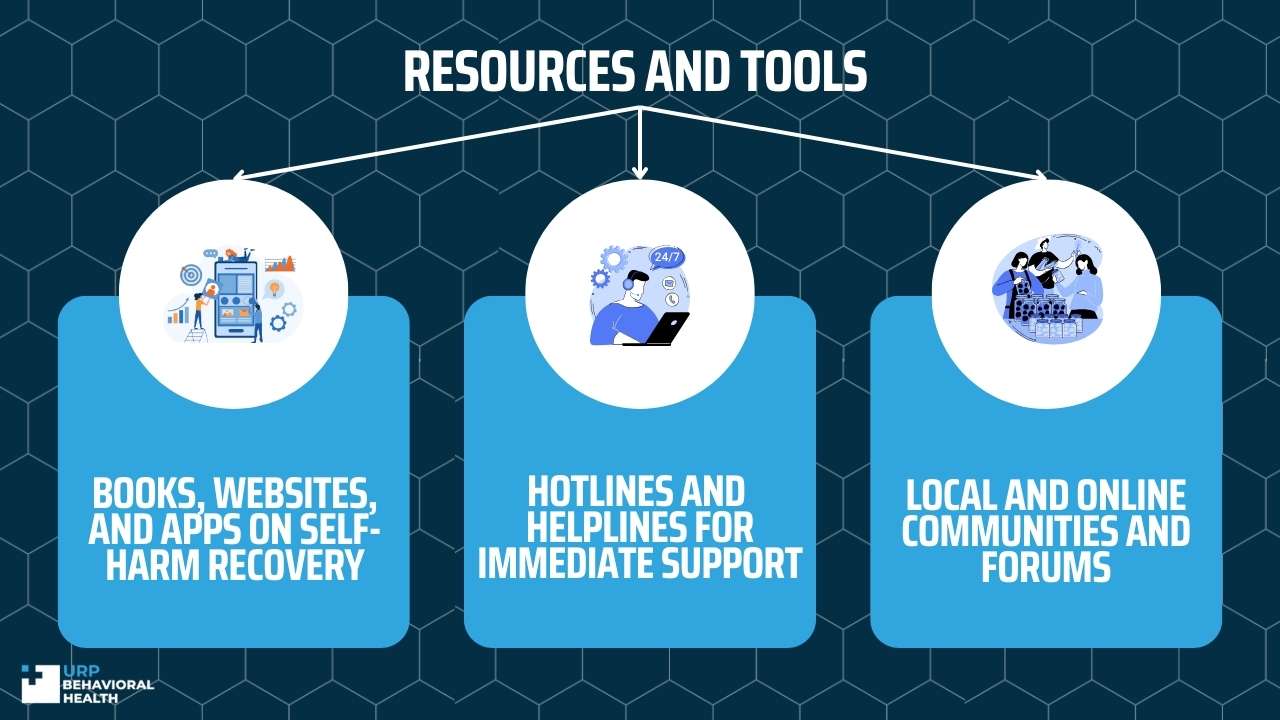
Resources and Tools
Books, websites, and apps on self-harm recovery
There are different books that can help improve your understanding of self-harm so you can respond to urges more effectively. There are even applications designed to track self-harm behaviors and assist you in dealing with negative emotions.
Hotlines and helplines for immediate support
At times, it helps to have someone to talk to. By calling a crisis helpline, you can speak to a trained volunteer about how you’re feeling. They can provide immediate support by listening to you so you feel less overwhelmed and no longer have the urge to self-harm.
Local and online communities and forums
If you’re not at a stage where you’re comfortable communicating with a group in person, online communities and forums can help. These provide you with a supportive environment where you can discuss your struggles and learn from others who have experienced similar circumstances. Seeing others heal will motivate you to improve your coping skills and share your own story of recovery.
Let us guide you towards healing
We know that seeking treatment can be overwhelming, but our staff is here to make the process as smooth as possible. We’re available 24/7 to address any questions or concerns you may have.

